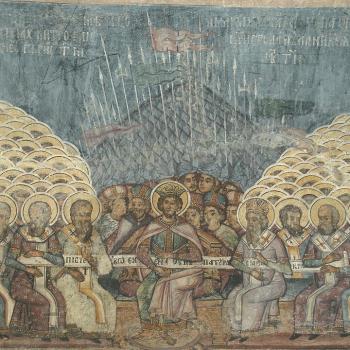The history of failure has always inspired me. My own dissertation was written on the failure of the Catholic missionary efforts in England in the 17th century. Maybe it is my kneejerk reaction to the prosperity gospel or being raised in a tradition that traced its roots to the Radical Reformation rather than the Magisterial, state-based Protestant Reformation. In either case, the history of lost causes, the failure of efforts worked for and sacrificed for is a crucial element in my teaching, preaching, and research.
In Spain in Our Hearts, Adam Hochschild explores what happens when the cause we believe in fails. The civil war in Spain in the 1930s was widely believed by people at the time to reflect a profound moral conflict and the first of what seemed an inevitable war against fascism. The former Allies of the Great War, with their reputed commitment to rights, democracy, and what had been liberal values, were reluctant to intervene and claimed neutrality (one that US President Roosevelt later publicly regrated). Men and women outside of Spain who opposed fascism had to decide whether to volunteer, risking their lives without the backing of their countries of origin.
Hochschild uses this tragic war, one in which Mussolini and Hitler openly sent men and weapons to practice their military tactics with Franco (while only the Soviets would support the Republic, and did so in very limited ways) to discuss how we forget and are almost embarrassed about the failure of causes we believe in. Should we limit our commitments to what seems to be “achievable?” Hochschild based the title for his book on a poignant quote by Albert Camus (recently discussed on this blog by Michael Jimenez) that addresses this challenge: “Men of my generation have had Spain in our hearts. . . . It was there that they learned. . . that one can be right and yet be beaten, that force can vanquish spirit, and that there are times when courage is not rewarded.”
More than that, what happens when the cause we believe in is flawed? The folks who fought for the Republic came from many political backgrounds, and there was real conflict between communists, socialists, anarchists, and the traditional liberals who all opposed the nationalist and anti-democratic Franco-led forces. Hochschild notes that there was also frequently self-censorship on the side of English-language writers such as Earnest Hemingway who wanted to drum up support for the Republic. George Orwell’s much more honest assessment failed to find an audience until the Cold War when his criticism of the Communists fit the anti-Soviet mood.
Of course, when the cause we believe in fails, those who fought for it can still inspire us. My students are looking for heroes, for “political ancestors” who worked for justice. Do we only point to the ones who were triumphant and whose dreams were achieved? What about the righteous cause that failed? More than that, Hochschild’s analysis highlights the difficulty many of us have in finding spiritual or political or cultural ancestors whose cause was also fraught by imperfection or was flawed in really challenging ways. The in-fighting in the Spanish Civil War and the role played by the Soviets can be blamed partly on the lack of support the Republic got from liberal governments, but that doesn’t absolve it. And well-meaning folks who chose to fight against fascism with the Republicans had to do so in full awareness of the occasional corruption, violence, incompetence and internal fighting on the side they chose.
Another example of the failure of a cause or group we may believe in is presented in Philip Jenkins’ The Lost History of Christianity. Jenkins lovingly and in vivid tones lays out the history of the Eastern Church. His subtitle explains how this story can fit into the history of lost causes: The Thousand-Year Golden Age of the Church in the Middle East, Africa, and Asia—and How it Died. It’s that last phrase that my church history students have so much difficulty with. They genuinely believe that people will be attracted to those who stand up bravely under persecution. Tertullian’s ancient claim that “the blood of the martyrs is the seed of the church” rings true for them.
Jenkins is careful to show all the ways that the church in the East was thriving, but still argues that just because an institution like the church or communities like these, become oppressed, reduced in power and numbers, and even seem to totally fade away it doesn’t mean that they aren’t worth studying. We like success and we sometimes focus on the Latin church in Western Europe because it (and its daughter, Protestantism) came to dominate in the world.
He draws many important lessons for Christians today from studying this failure of a cause/community. Among these lessons are the idea that just because these churches lost dominance doesn’t mean it was their fault. A good cause can fail—even as it may also be flawed. And of course, they didn’t entirely go extinct. There are still very small churches in some of the places where the church thrived one thousand years ago but is now no longer a major player. Those small churches have lessons to teach the larger church about being the marginalized and finding ways to work in spite of oppression. The failure of a cause we believe in frequently elicits a search for blame—we think people should have acted differently and they could have prevented decline or loss or failure. But this isn’t always possible. The search for blame can distract us from the complexity of context.
And there’s another, opposite tension when thinking about causation that easily seduces us. It is far too easy to look back and assume that failure of anything—whether the Spanish Civil War or the Eastern Church—is inevitable. This makes us think that the people in those scenarios where their cause failed were foolish for not seeing this inevitability or for continuing to work for something that was destined to fail. When we only celebrate the wins we make it seem like all our causes are guaranteed to succeed, or (per the temptation to focus on blame) that if we just do things correctly, our cause will triumph. There are real serious social and spiritual, not to mention political, consequences if we believe the only good movements or efforts are the ones that prevail.
Contingency is one of the most important lessons of history. Things don’t have to turn out the way that they do. This is hard for modern people because we are seduced by that narrative of progress. But things don’t always get better and the things we believe in don’t always win. As a Christian, this shouldn’t surprise me. My religious tradition was born in the context of oppression and minoritization. Jenkins’ observations about learning from Christianities that lacked power and dominance is one that rings true for all the causes I believe in. They aren’t guaranteed to succeed in the ways I dream of, but they are worth investing in and working toward anyway.

















